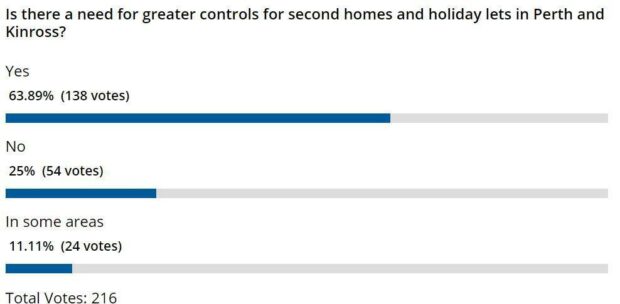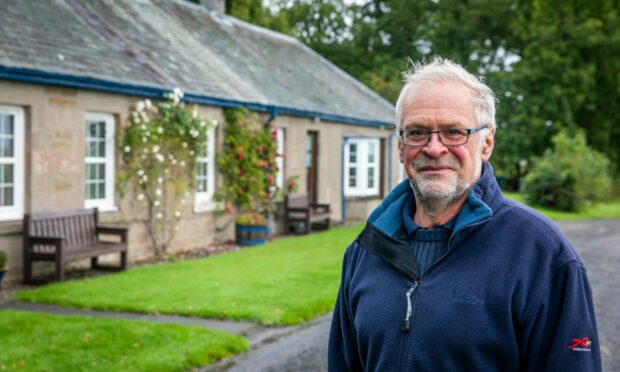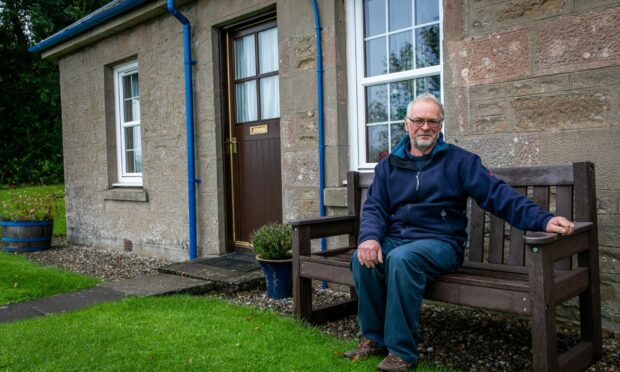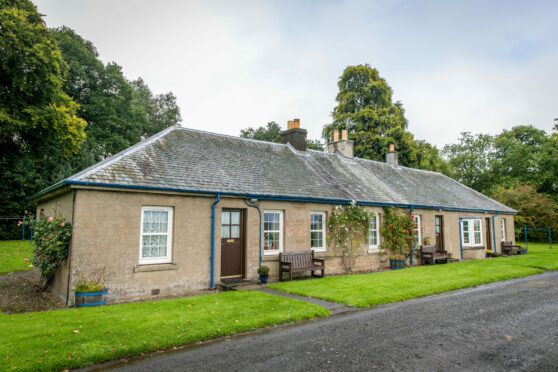The debate on the impact of holiday lets in parts of Perthshire is one that may not go away any time soon.
The effect on people trying to buy a home, coupled with trying to attract tourism to the area, has generated great discussion on the topic.
Self-catering business owners say their model provides people with a chance to get away without having to go abroad amid Covid concerns.
And they argue that visitors also contribute to the wider economy by using local restaurants and attractions.
But to what extent does there still exist a demand for greater controls for second homes and holiday lets in Perth and Kinross?
Over 60% of Courier readers who responded to our poll said they are in favour of such a move.
‘Hugely important to Scottish tourism’
David Smyth and his wife Moyra have run their self-catering business, Cloag Farm Cottages in Methven for more than three decades.
He believes self-catering accommodation is an asset to Perthshire, particularly with tourism and boosting the local economy.
“We have been running our self-catering business for 32 years with no problems,” he said.
“Visitors are happy and many return. Our visitors shop locally, visit attractions and eat out.
“Our business uses and supports other local businesses.”
He added: “There has been a huge demand for self-catering from a UK market this year as foreign travel has been difficult, and rural Perthshire is a good fit for a nervous population looking to get away.”
Meanwhile, the Association of Scotland’s Self-Caterers believes such businesses are an integral part of local communities.
Chief Executive Fiona Campbell said: “Self-catering is hugely important to Scottish tourism, in terms of jobs, revenue, and the world-class experiences we’re able to offer our guests.
We do not ‘hollow out communities’, as some have claimed.”
Fiona Campbell, Association of Scotland’s Self-Caterers
“To be such an essential part of Scotland’s tourism mix is even more remarkable for our sector, which generates £867 million every year, when we consider that most self-caterers operate small to medium-sized businesses.
“Scotland’s professional self-caterers are diligent, conscientious, and considerate business people who are unjustly accused of all sorts of things for which there is not a single scrap of credible evidence.
“We do not, for example, “hollow out communities”, as some have claimed, but rather are part of local communities across Scotland and have been for many, many years.”
Tighter restrictions?
But some still believe holiday lets should be subject to greater restrictions.
Last week, we heard from an elderly Blairgowrie resident who spoke out about her negative experiences of living below a holiday let.
We also asked what you, our readers, thought about the issue, with more than 60% of the 216 people who responded saying they believe tighter restrictions should be in place.

Meanwhile, 25% felt there was not a need for such action, with just over 11% saying it is only necessary in some areas of Perth and Kinross.
SNP councillor Mike Williamson of the Highland ward described the issue as a “difficult balance” with tourism providing employment opportunities but there also existing a “lack of affordable housing”.
And what about elsewhere in Scotland?
There has been similar discussion and debate in other parts of Scotland.
Earlier this week, we revealed that renting a property during the week of the 150th Open Championship in St Andrews could cost as much as £31,000 – more than many people earn in an entire year.
Meanwhile, a bid to control the number of short-term lets in Fife’s East Neuk has sparked a heated debate.
Like in Perthshire, Fife property owners say catering for tourists brings in vital business and boosts the economy.
But many locals say they are being priced out of the housing market as once-affordable homes are snapped up for 10 to 20% above the asking price.
Fife Council has now agreed to consider control zones for holiday lets across the region.


